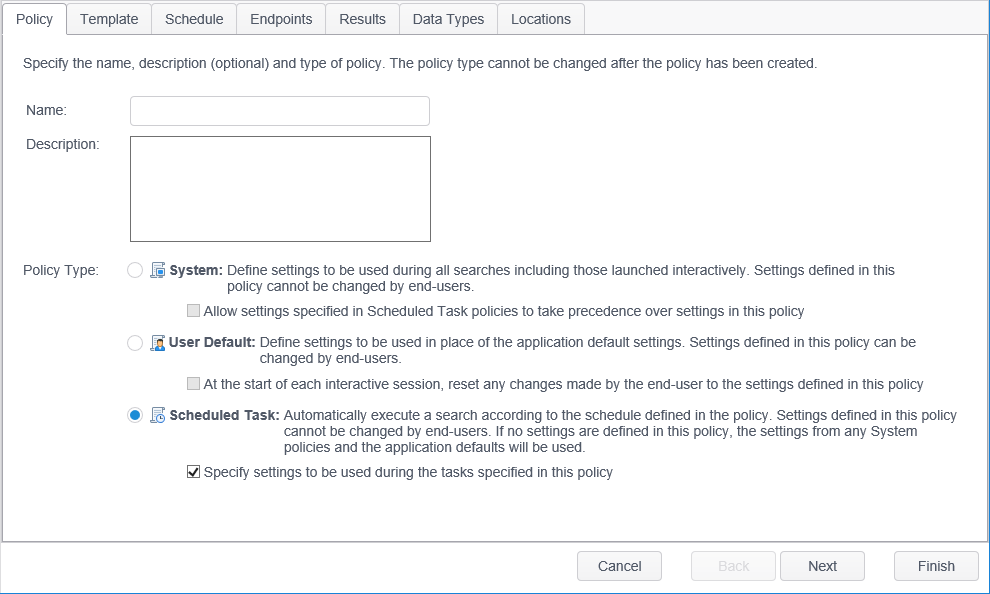| Name |
A unique name for the policy. |
| Description |
Use this field to enter a description of the policy. When you hover the mouse over a policy name in the policy list, any text you have entered in the description field displays. |
| Policy type |
The purpose of the policy.
- System: Applies to all users and all searches on an endpoint. Users of the Agent software are not able to modify a setting if that setting is defined in this policy. A setting defined in a System policy overrides the value of a setting in any other policy type. For example, if a setting is defined in a User Default policy and the same setting is defined in a System policy with a different value, the System policy value is used as it is authoritative. A System policy is the only policy type that allows Global Ignore Lists to be assigned.
- Allow settings specified in the Scheduled Tasks policies to take precedence over settings in this policy: When enabled, a setting specified in a scheduled task policy takes precedence over a conflicting setting in the system policy when the task is executed. For example, if the system policy has CCN data types enabled and the scheduled task policy has CCN data types set to Disable, the CCN's are not searched. If this is box is unchecked, settings specified in the scheduled task policy do not override any conflicting settings in the system policy. For example, if the system policy has CCN data types enabled and the scheduled task policy has CCN data types set to Disable, the CCN's are searched.
- User Default: Applies only the first time the Agent software is run on each endpoint (unless specific settings are configured in a System policy). The user is able modify their configuration for any setting defined in this policy. These policies are most commonly used to specify settings that are different than the internal application defaults, but that still allow the user to change those settings. User Default policies do not support the use of Global Ignore Lists or Scheduled Tasks.
- At the start of each interactive session, reset any changes made by the end-user to the settings defined in this policy: Enabling this option allows administrators to specify defaults that are used by all users who sign into the Spirion application using a profile password. Users may change their settings during a session but they are reset for the next session.
-
Scheduled Task
- Specify settings to be used during the tasks specified in this policy: When enabled, you can specify the settings that are used when the task is executed. If this box is unchecked, you are not able to specify the settings when you create the policy and the application default settings are used. When editing the scheduled task policy after it has been created you are able to make any desired changes to the settings.
|
